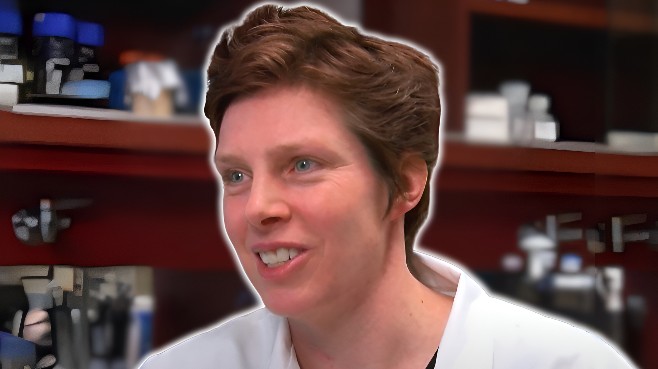Helen Dooley: Pioneering Immunologist Unlocking Secrets of Shark Antibodies

Helen Dooley is a trailblazing figure in the realm of evolutionary immunology, whose groundbreaking work on shark-derived antibodies is reshaping the landscape of immunotherapy and biomedical research. As an Associate Professor at the University of Maryland School of Medicine and a leading scientist at the Institute of Marine and Environmental Technology (IMET) in Baltimore, her research has uncovered critical insights into the adaptive immune systems of cartilaginous fish. Dooley’s work bridges evolutionary biology and modern medicine, revealing the immune architecture of ancient species and translating it into cutting-edge applications for human health.
Early Life and Academic Background
Helen Dooley’s academic journey began in the United Kingdom, where she pursued her Bachelor of Science in Genetics at the University of Aberdeen. Her intellectual curiosity and passion for understanding complex biological systems soon led her to complete a Master of Science with distinction in Antibody Engineering. Committed to pushing the frontiers of science, she further pursued a PhD at Aberdeen, focusing on antibody research, particularly on alternative forms of adaptive immunity that could be harnessed for therapeutic use.
During her doctoral studies, Dooley became captivated by the immune systems of cartilaginous fish like sharks and rays, which diverged from the vertebrate lineage over 450 million years ago. Unlike mammals, these ancient animals use a unique form of immunoglobulin called IgNAR (Immunoglobulin New Antigen Receptor), which consists of heavy-chain-only antibodies. This discovery laid the groundwork for her future research.
Postdoctoral Research and Early Career
After earning her PhD, Helen Dooley joined the comparative immunology group of Professor Martin Flajnik at the University of Maryland, where she conducted extensive postdoctoral research. Here, she focused on the adaptive immune systems of jawed vertebrates, gaining deeper insight into the evolutionary mechanisms underlying antibody diversity.
One of her early scientific breakthroughs involved the use of phage display libraries to isolate high-affinity single-domain antibodies from sharks. These VNARs (Variable New Antigen Receptors) are among the smallest naturally occurring antigen-binding domains, characterised by exceptional stability, solubility, and the ability to access epitopes not reachable by conventional antibodies. These properties make VNARs especially valuable in designing diagnostics, therapeutics, and imaging agents.
Dooley’s research in this field was among the first to establish that cartilaginous fish possess a robust and adaptable immune system capable of affinity maturation, memory response, and antigen selection — characteristics previously thought to be unique to mammals. These findings significantly contributed to the understanding of the evolutionary origins of adaptive immunity.
Career at the University of Maryland
In 2016, Helen Dooley returned to the University of Maryland School of Medicine as a faculty member, bringing with her a wealth of knowledge and a vision for expanding the field of comparative immunology. She was appointed Associate Professor in the Department of Microbiology and Immunology and began her tenure at IMET, a collaborative research hub integrating marine biology with medical science.
At IMET, she established her own laboratory focused on the evolution and function of the vertebrate immune system. Her lab is equipped with state-of-the-art facilities for animal husbandry, molecular biology, protein engineering, and high-throughput screening. The team works primarily with nurse sharks and other elasmobranch species to dissect the architecture of their immune responses.
Research Contributions and Innovations
Helen Dooley’s contributions to the scientific community are multifaceted, ranging from fundamental research in immunology to translational science with real-world applications. One of her most prominent achievements is the structural and functional characterisation of IgNAR antibodies.
She led the effort to crystallise the structure of a shark IgNAR domain bound to lysozyme, providing the first high-resolution image of how these unique antibodies interact with antigens. This work highlighted the potential of VNARs to serve as robust scaffolds for therapeutic antibodies, especially in targeting hidden or concave epitopes.
Furthermore, her team developed innovative platforms to isolate and engineer VNARs with high specificity and affinity for targets of clinical interest. These include viral proteins, tumour markers, and inflammatory mediators. During the COVID-19 pandemic, Dooley’s lab generated shark-derived nanobodies that neutralised SARS-CoV-2, including highly evasive variants such as Omicron. This work demonstrated the therapeutic potential of VNARs in combating viral infections.
Another groundbreaking discovery by Dooley and her colleagues was the identification of lymphoid-like structures in the pancreas of nurse sharks. These formations exhibited features of secondary lymphoid organs, such as B-cell follicular development and antigen-driven immune response, even in the absence of lymph nodes. This challenged long-standing assumptions about the anatomical constraints of adaptive immunity and opened new avenues for studying immune tissue evolution.
Broader Impact on Medicine and Biotechnology
Helen Dooley’s work has transcended the academic realm, capturing the attention of biotechnology firms and pharmaceutical companies. The unique properties of shark VNARs — small size, thermal stability, and high binding specificity — make them ideal candidates for applications where conventional antibodies fall short.
For instance, VNARs can penetrate dense tissues, cross biological barriers, and retain activity in harsh environments. This has led to their exploration in areas such as:
- Cancer immunotherapy
- Inflammatory disease diagnostics
- Targeted drug delivery
- Neurological imaging agents
- Anti-viral therapeutics
Her research has also informed the development of inhalable antibody therapies, where compact size and resistance to denaturation are paramount. These therapies hold promise for treating respiratory diseases, including COVID-19, influenza, and RSV.
Mentorship and Academic Leadership
Beyond her laboratory achievements, Helen Dooley is deeply committed to education and mentorship. She supervises doctoral and postdoctoral researchers, nurturing the next generation of immunologists and molecular biologists. Her teaching emphasises critical thinking, scientific integrity, and interdisciplinary collaboration.
She is an active member of several professional societies, including the American Association of Immunologists and the International Union of Immunological Societies. She frequently presents at global conferences, sharing her findings and engaging in cross-disciplinary dialogues.
Recognition and Awards
Helen Dooley’s exceptional contributions have earned her numerous accolades, grants, and invitations to participate in international research collaborations. Her work has been published in top-tier journals such as Science, Nature Communications, and The Journal of Immunology. These publications have garnered citations worldwide, underscoring the global significance of her research.
In recognition of her translational work, she has also received support from governmental and private agencies, including the National Institutes of Health and various biotech partnerships. Her patents on VNAR-based therapeutic designs further solidify her standing as a leader in antibody engineering.
Vision for the Future
Looking ahead, Helen Dooley envisions a world where lessons from evolutionary immunology inform next-generation healthcare. She advocates for a deeper integration of marine biology into medical research, arguing that ancient species offer untapped resources for solving today’s most pressing biomedical challenges.
Her lab is currently exploring the application of VNARs in neurodegenerative diseases and immune checkpoint regulation. The goal is to create targeted therapies that are both effective and minimally invasive. Additionally, she is working on developing shark antibody-based biosensors for rapid diagnostics in resource-limited settings.
Dooley also aims to expand the educational reach of her work, developing open-access resources and community outreach programmes to foster public engagement with marine science and immunology.
Conclusion
Helen Dooley represents a rare confluence of scientific rigour, visionary thinking, and practical innovation. Her exploration of shark immune systems has not only expanded the boundaries of evolutionary biology but also laid the foundation for transformative advances in medicine and biotechnology. Through her dedication, creativity, and collaborative spirit, Dooley continues to inspire scientists and students alike, proving that sometimes the most powerful solutions to human problems can be found in the depths of the ocean.
In a world grappling with emerging pathogens and complex diseases, Helen Dooley’s work serves as a beacon of what science can achieve when curiosity meets purpose. Her legacy is still unfolding, but it is already evident that her impact will resonate for generations to come.



